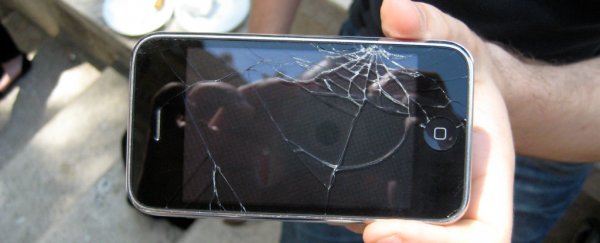Scientists working at the University of Tokyo's Institute of Industrial Science (IIS) have fashioned a new type of glass that they say is almost as strong as steel, Gizmodo reports. Not only could that give action movie heroes a more limited repertoire, it could also make our smartphones and electronic gadgets a lot more durable.
Once you start to think about the areas where glass is used in everyday life, the breakthrough becomes more and more interesting: imagine car windows that wouldn't smash on impact, or ultra-strong buildings, or even a wine glass that leaves a chink in your kitchen floor when you drop it, rather than smashing into tiny pieces.
However, getting ultra-strong glass in the laboratory is one thing – making it commercially available is another. "We will establish a way to mass-produce the new material shortly," IIS assistant professor Atsunobu Masuno told The Asahi Shimbun. "We are looking to commercialise the technique within five years."
The special ingredient in the extra-tough glass is alumina or aluminium oxide, a compound used in plastics and paints and known for its hardness – it's just below diamond on the Mohs scale. By mixing alumina with silicon dioxide, glass can be made much tougher, but the real innovation here is the way the researchers were able to synthesise the chemical elements together in the air: a process known as an aerodynamic levitation technique.
Previous attempts to add alumina to glass have failed, because the raw mixture crystalised as soon as it touched any kind of container. By removing the container and mixing the glass in the air instead, this problem was overcome. The resulting glass is transparent, 50 percent alumina, and comparable to steel and iron in terms of its rigidity and elasticity.
One of the advantages of the new type of glass is that it can be made very strong without being very thick – again, that's a bonus for the miniature computerised devices we all carry around in our pockets, as well as the electronics of the future.
The results of the study, published in the journal Scientific Reports, found that the new material offered "good mechanical properties, high transparency and a high refractive".
There's plenty of work still to do to replicate these results on a larger scale, but the Japanese team of researchers is confident that the glass can be made even tougher in the future.
So if you are prone to dropping your smartphone on a regular basis, take heart – help is on the way.
